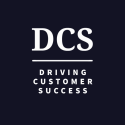How to Measure Customer Happiness & Ensure Satisfaction

There’s no set recipe for improving relationships with customers and growing your business. Even so, a crucial ingredient to the meal is understanding how to efficiently track & measure customers’ happiness. But the question is, how will you know for sure if your customers are satisfied with your product?
No worries, though. There are various metrics to track and methods you can deploy to help you answer the question. I’m here to explain them, show you how they work, and why you need them. Let’s start with my favorite – customer health scores!
1. Track Customer Health Scores
To make sure satisfaction levels are beaming, one efficient way is using customer health scores tied to those metrics that determine your customers’ success.
Running the usual customer satisfaction surveys and conventional tracking of customers’ reactions online can easily get tiring. It’s much easier to see if a customer is happy by looking at how they specifically use your product and if they have their expectations met. And that’s where health scores come in.
Customer Health Score (CHS) is an essential metric for SaaS businesses, but you can find ways to apply the idea behind it to nearly any business. There’s nothing more frustrating than not knowing the reasons why your customers churn or how likely they are to renew their subscriptions. Customer Health Scoring gives you those insights, so you’re better able to measure customers’ happiness.
Striving to make sure your customers have a high health score by identifying and addressing their targeted pain points doesn’t only help you improve overall customer satisfaction & retention rates. It also increases your chances of landing new customers through your advocates’ referrals.
However, getting Customer Health Scoring right is hard because there’s no one-size-fits-all methodology here. Although going through the process of creating customer health scores, you will eventually reach an ideal formula for your business.
How you calculate your customers’ health score depends on the metrics you find most relevant for your business:
- The number of customer goal completions;
- The number of custom features used;
- The level of growth of the account (whether the customer upgraded over time);
- The level of marketing participation (whether they recommend you to other businesses);
- Their overall product feedback;
- The number of support tickets;
And much more.
Each health score you set up based on the metrics you choose can show you different things, like their risk of churn, how ready they are to upgrade, or how satisfied a customer is at a given time, to name just a few.
2. Track The Number of Customer Goal Completions
A customer that has their needs met is a happy customer. By using a custom health scoring system, you can identify the necessary metrics to track to see how well your customers’ experience with your product or service is meeting their expectations.
These goals will depend on the type of business you are:
- If you’re a streaming service, you might want to know if a customer’s using the mobile app.
- If you’re an email software, you’ll definitely want to see how many campaigns each user created.
- If you’re a billing & account tool, you’ll want to find out if customers are creating their invoices correctly & in the most efficient way.
The more they meet their objectives, the happier they’ll be with your company. And so you’ll know when they’re not satisfied & will be able to act before churn happens.
3. Track The Number of Support Tickets
When using the number of support tickets to measure your customers’ happiness & satisfaction, you track how often customers are dissatisfied, as well as how your support teams are taking care of them.
Look at the number of open support tickets your customers have at a certain point in time. If they have a larger number of support tickets submitted, then this customer is obviously not happy.
The more open and unresolved support tickets there are, the lower that customer’s satisfaction level.
4. Run a Net Promoter Score® (NPS®) Survey
One of the most frequently used methods to collect customer feedback and to measure their levels of happiness and satisfaction is running a Net Promoter Score® (NPS®).
A Net Promoter Score® survey makes it a breeze to gauge how your customers feel about your company or product. Because of how quick & easy it is to deploy, NPS® is regarded by many as a top metric to track.
Basically, you ask the “ultimate” question: “How likely are you to recommend this product to a friend or family?”. But by the nature of the question itself, it’s seen as a better indicator for customer loyalty than customer satisfaction.
Formula: [NPS = % of Promoters – % of Detractors]
Or you can turn your attention to how willing your customers are to participate in surveys in general.
5. Track CES (Customer Effort Score)
Another survey metric for measuring customer happiness & satisfaction is the Customer Effort Score, as it helps you measure the ease of service experience within your company. In a nutshell, it asks your customers to rate the ease of using your products or services on a scale of “very difficult” to “very easy.”
You can create and send CES surveys after every interaction your customer has with your product/service or your support team, to track their level of engagement and overall satisfaction with your business.
And you can apply it to all client-facing processes within your organization, which in return will help you identify the corrective actions you need to take to drive further customer success.
Formula: [Customer Effort Score = % of Agree – % of Disagree]
6. Track CSAT (Customer Satisfaction)
Going by its name, the CSAT scoring method is a very straightforward way of measuring customer happiness and satisfaction levels through a survey.
The CSAT survey uses one or more variations of the question “How would you rate your overall satisfaction with the product or service you received?”. Users have to respond to that on a scale from “very unsatisfied” to “very satisfied.”
Comparing it to the NPS® method, CSAT targets a “here and now” reaction to a specific interaction, product, or event, rather than the customer’s ongoing happiness and relationship with your company (which can be better measured using Customer Health Scores).
To truly understand the drivers behind the scores and to help you take the necessary action to ensure your products or services meet your customers’ expectations, you should supplement your CSAT scores with further qualitative research or input from your Customer Health Scores.
Formula: [Customer Satisfaction Score = Happy customers / Number of customers asked]
7. Measure Customer Churn Rate (CCR)
As one of the most important customer KPIs, customer churn is a key metric to track for measuring customer happiness and satisfaction.
One question that can help you process this is “How long do customers use my product/service?”. That’s where CCR comes into play, as it’s the percentage of your customers that you’ve lost over a certain period – and it is a negative factor. Meaning that the higher your customer churn rate is, the worse it is for your growth.
Customers who aren’t active enough to invest or engage with your services or products can be an indicator that your business is facing churn. Most customers cancel their subscriptions because they have stopped getting value from the services you offer – which you, obviously, don’t want to happen.
Formula: [Churn Rate = [(Number of customers who left / Total number of remaining customers) * 100]
Want to easily calculate your churn and play with your numbers? Use this SaaS Churn Calculator.
8. Track Social Media Engagement
Social media is a powerful tool in helping you measure customer happiness. It gives you access to a wealth of information about your customers and helps you answer questions before they become big issues.
Social media is free, and it’s used by virtually everyone. If your customers have something to say about their experience with your company, they’ll likely say it on Facebook, Twitter, LinkedIn, Instagram, etc. And tracking when your brand is mentioned on social media helps you understand how your customers perceive your marketing output, product releases, customer service, corporate behavior, and their overall sentiment about your business.
Keeping track of any big shifts in how people talk about your business on every platform that’s relevant to you will give you a good idea of your customers’ overall happiness and satisfaction.
9. Track Customer Reviews
Having a customer-centric attitude is strongly linked to a company’s success, as at the end of the day, customers are the ones that generate income. Customer reviews & feedback are essential to track customer happiness levels and allow you to monitor your market position in real-time, to see where you stand against your competitors.
Let’s be honest. It’s way better when someone else is telling the whole world how amazing you are, instead of tooting your own horn. And if your happy customers see the value that you bring, they vouch for you, eventually becoming great advocates for your business through their positive reviews.
Negative reviews will also be easier to pinpoint, as you can find out exactly who is talking about you and use this information to target them with accuracy and provide the help they need ASAP, and possibly win them back with kindness.
Why You Need To Keep Up With Where Your Customers Are
Besides all the specific ways to improve certain customer happiness metrics that have already been mentioned above, there’s one strategy that truly stands out: building a customer-centric company, proactive, listening, and putting your customers first.
It’s obviously not something you can achieve in a flash, but it’s a shift that can truly transform your business. After all, satisfied customers are what drives customer & overall business success. – Philipp Wolf, CEO of Custify

Hakan Ozturk
Founder, theCScafe.com, #1 Weekly Customer Success Newsletter
Hakan Ozturk is a Paris-based Customer Success leader with over 15 years of experience in the computer software industry. Passionate about driving growth and delivering value to strategic customers, Hakan has established himself as a trusted industry expert. As the Founder of The Customer Success Café Newsletter and TopCSjobs.com, Hakan provides valuable industry insights and daily-updated job opportunities worldwide in the field of Customer Success. Connect with Hakan to boost your career in CS and your company’s potential for massive growth.

Leave a Reply